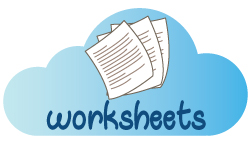What is a Verb? | Definitions, Rules, & Examples
- Grammar Lessons >
- Verbs
A verb is a word denoting an action or state of being.
Examples:
Kevin wrote his assignment. (action)
Anna is interested in music. (state of being)
Action Verbs
An action verb is a verb that denotes a physical or mental action.
Examples:
Ana is cleaning the room. (physical action)
Maya has thought some fantastic holiday ideas. (mental action)
Quick tip: A physical action verb refers to an explicit physical action. Verbs such as "run", "kick", "swim", etc. are examples. On the other side of the spectrum, a mental action verb refers to an invisible action, or an action that happens within the mind and not physically seen. Verbs such as "like", "doubt", and "decide" are examples.
Linking Verbs
A linking verb, also known as a copular verb, acts as a link to connect the subject of a sentence to its predicate. Linking verbs don't denote actions.
Examples:
Agatha sounded excited.
The curry smelled delicious.
The verbs "sounded" and "smelled" don't imply actions; they only link the subjects to their predicates. To put it simply, the two sentences mean "Agatha was excited." and "The curry was delicious." respectively.
Helping Verbs
A helping verb is a verb that helps the main verb by adding details to the meaning.
Example:
I am playing tennis.
In this sentence, the helping verb "am" helps us understand that the person is playing at the present time.
There are two types of helping verbs: primary helping verbs and modal helping verbs.
Primary Helping Verbs
Primary helping verbs are forms of "be". Examples of primary helping verbs are is, was, are, and so on.
Example:
Chris was a teacher earlier in his career.
The primary helping verb "was" is the past singular form of "be".
Modal Helping Verbs
Modal helping verbs help add a whole new dimension to the meaning of the verb. A modal helping verb expresses meanings such as possibility, necessity, and willingness.
Example:
Tom might come late today.
The modal "might" in the sentence means possibility.
Transitive Verbs
A transitive verb is an action verb that requires an object to complete its meaning.
Examples:
Alex ate an apple.
What did Alex eat? an appleAva wrote a letter.
What did Ava write? a letterIntransitive Verbs
An intransitive verb is a verb that doesn't require a direct object.
Examples:
It is raining. (The verb "rain" has no direct object, nor does it need one for the meaning to be complete.)
Little Johnny smiled beautifully. (The verb "smile" does not require a direct object.)
Regular Verbs
A regular verb is a verb that conforms to the traditions of forming simple past tense and past participle.
Examples:
jump - jumped
clean - cleaned
Irregular Verbs
An irregular verb is a verb that doesn't conform to the traditions of forming simple past tense and past participle.
Examples:
sit - sat
drink - drank
Click on the Circles to Spot the Six Verbs
There are two ways to identify a verb. We can identify a verb by its location in a sentence; most of the time, a verb comes after a noun or pronoun.
Example:
Alex works for a bank. He is the manager there.
Another way to identify a verb is to ask yourself "What's happening in the sentence?". The verb will be the answer to this question.
Examples:
Mom will be participating in this year's New York food Festival.
Ask yourself what is happening. You get the answer: Mom is participating.
There are four basic forms of a verb in English:
Words That Can Be Both Verbs and Nouns
There are many words in English that can be both verbs and nouns. But there is a difference in the ways we pronounce them. We stress the first syllable if the word is used as a noun, and we stress the second syllable if it's used as a verb.
Verbs come in three tenses: past, present, and future.
Past Tense
The past tense refers to past actions.
Examples:
George Washington became the first president in 1789.
We were feeding the dog when Dad came.
Present Tense
The present tense refers to current actions.
Examples:
The Andersons are visiting Europe.
The bald eagle is mostly found in North America.
Future Tense
The future tense refers to future actions.
Examples:
We will visit Grandpa tomorrow.
Aunt Rose will take us for dinner next week.

Hone your skills using our free printable Verb Worksheets.

